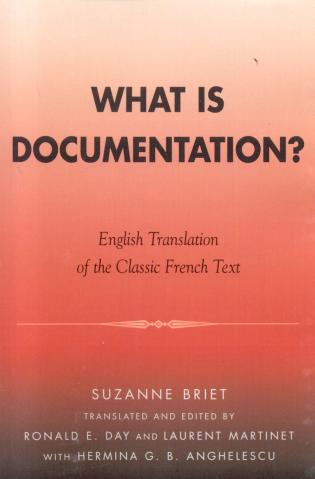Luciana Parisi: Contagious Architecture: Computation, Aesthetics, and Space (2013)
Filed under book | Tags: · abstraction, aesthetics, algorithm, architecture, cognition, computation, computing, cybernetics, design, evolution, feedback, infinity, information, interaction design, knowledge, media, metaphysics, networks, neural networks, philosophy, processing, randomness, sensors, software, space, temporality, time, topology, variation

“In Contagious Architecture, Luciana Parisi offers a philosophical inquiry into the status of the algorithm in architectural and interaction design. Her thesis is that algorithmic computation is not simply an abstract mathematical tool but constitutes a mode of thought in its own right, in that its operation extends into forms of abstraction that lie beyond direct human cognition and control. These include modes of infinity, contingency, and indeterminacy, as well as incomputable quantities underlying the iterative process of algorithmic processing.
The main philosophical source for the project is Alfred North Whitehead, whose process philosophy is specifically designed to provide a vocabulary for “modes of thought” exhibiting various degrees of autonomy from human agency even as they are mobilized by it. Because algorithmic processing lies at the heart of the design practices now reshaping our world—from the physical spaces of our built environment to the networked spaces of digital culture—the nature of algorithmic thought is a topic of pressing importance that reraises questions of control and, ultimately, power. Contagious Architecture revisits cybernetic theories of control and information theory’s notion of the incomputable in light of this rethinking of the role of algorithmic thought. Informed by recent debates in political and cultural theory around the changing landscape of power, it links the nature of abstraction to a new theory of power adequate to the complexities of the digital world.”
Publisher MIT Press, 2013
Technologies of Lived Abstraction series
ISBN 0262018632, 9780262018630
392 pages
For a New Computational Aesthetics: Algorithmic Environments as Actual Objects lecture by Parisi (2012, video, 72 min).
Reviews: Lecomte (Mute, 2013), Ikoniadou (Computational Culture, 2014).
PDF (24 MB, updated o 2021-10-28)
Comments (2)Alessandro Delfanti: Biohackers: The Politics of Open Science (2013)
Filed under book | Tags: · biology, capitalism, code, commons, diy biology, freedom, gift economy, hacker culture, hacker ethic, hacking, information, intellectual property, open science, open source, science, software, technology

“Biohackers explores fundamental changes occuring in the circulation and ownership of scientific information. Alessandro Delfanti argues that the combination of the ethos of 20th century science, the hacker movement and the free software movement is producing an open science culture which redefines the relationship between researchers, scientific institutions and commercial companies.
Biohackers looks at the emergence of the citizen biology community ‘DIYbio’, the shift to open access by the American biologist Craig Venter and the rebellion of the Italian virologist Ilaria Capua against WHO data-sharing policies.
Delfanti argues that these biologists and many others are involved in a transformation of both life sciences and information systems, using open access tools and claiming independence from both academic and corporate institutions.”
Publisher Pluto Press, London, 2013
Creative Commons Attribution-NonCommercial-NoDerivs 3.0 License
ISBN 9781849649070
176 pages
Review (Alice Bell, The Guardian, 2013)
Review (Stefano Golinelli and Luc Henry, Science, 2014)
EPUB
PDF (added on 2018-10-17)
Issuu
Suzanne Briet: What is Documentation? (1951/2006) [French, English]
Filed under book | Tags: · bibliography, cultural techniques, data, document, information, knowledge, knowledge production, library

Born in Paris in 1894, Suzanne Briet was active in the development of what was then known as Documentation but would now be called Information Management or Information Science. In 1931, she participated in founding the Union Française des Organismes de Documentation (UFOD). She was a leader in developing professional education for this new specialty and designed a plan for what would have been the first school of Documentation / Information Science worldwide, had it been established. In 1951, when a school of information science was finally established, Briet was the founding Director of Studies. She became Vice President of the International Federation for Documentation (FID) and acquired the nickname “Madame Documentation.”
What is Documentation? relates this fascinating story and includes the first English translation of Briet’s remarkable manifesto on the nature of documentation, Qu’est-ce que la documentation?. Part I sought to push the boundaries of the field beyond texts to include any material form of evidence (“Is a living animal a document?” she asked). Part II argued that a new and distinct profession was emerging. Part III urged the societal need for new and active documentary services.
This tract remains significant due to its continuing relevance towards understanding the nature, scope, and societal impacts of documents and documentation. Briet’s modernist perspective, combined with semiotics, deserves attention now because it offers a sturdy and insightful alternative to the scientific, positivist view that has so dominated information science and which is increasingly questioned.
Publisher EDIT, Paris, 1951
48 pages
via Laurent Martinet
English edition
Translated and edited by Ronald E. Day and Laurent Martinet with Hermina G. B. Anghelescu
Publisher Scarecrow Press, 2006
84 pages
via Ronald E. Day
Reviews: W. Bede Mitchell (College & Research Libraries, 2007), Jonathan Furner (Libraries & the Cultural Record, 2008).
Publisher (EN)
Qu’est-ce que la documentation? (French, 1951, updated on 2017-11-16)
What is Documentation? (English, 2006, PDFs), single PDF (OCR’d, added 2014-8-14 via Marcell Mars)

